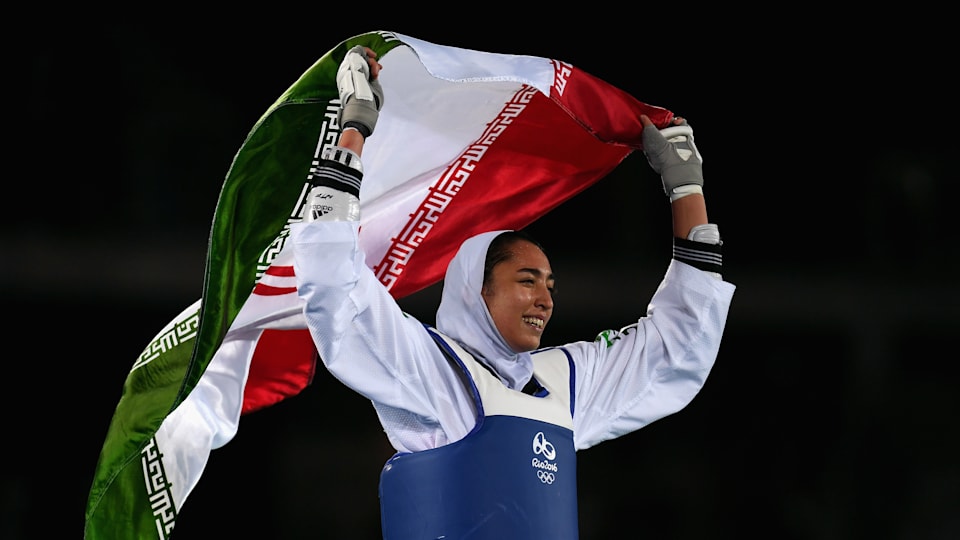Meet Kimia Alizadeh: The Olympic medallist refugee fighting for equality
The taekwondo player was celebrated in Iran when she won the Youth Olympic Games and bronze at Rio 2016, but fled in 2020 due to 'oppressed' conditions.

Taekwondo athlete Kimia Alizadeh became an international sports star from the unlikeliest of starts in life.
She was born into a modest life as the daughter of a tablecloth maker in Karaj, Iran, but always wished ‘to live a different life, not like others’, she told the Financial Times.
One day when she was seven, Alizadeh strolled into her town’s gym, which only offered taekwondo classes. It took time, but eventually she grew to love the martial art, and within a year she was a national champion.
Her regional celebrity became nation-wide in 2014, when she won a gold medal at the World Junior Taekwondo Championships in 2014. Later that year, she became a Youth Olympic Games champion in Nanjing, before she defeated two-time British Olympic gold medallist Jade Jones en route to bronze at the 2015 World Taekwondo Championships in Chelyabinsk, Russia.
These achievements led to high expectations at the Rio 2016 Olympic Games, and once again she didn’t disappoint.
Aged 18, she became her nation’s female Olympic medallist (winning bronze in the 57kg category). She was hailed as a hero back home, and given the nickname ‘tsunami’ due to her powerful exploits.
"I am very happy for all Iranian women, as it is the first medal for an Iranian woman in the Games, and I hope that in the next Olympic Games we will obtain the gold one," said Alizadeh at the time.
A year later she won silver at the 2017 World Championships in Muju, South Korea, as her star burned ever brighter.
But in January 2020, everything changed. The Karaj-born athlete fled her home country, calling herself ‘one of the millions of oppressed women in Iran’ in an Instagram post.
She also suggested that Iranian athletes were exploited behind the scenes, saying: "I dressed whatever you wanted. I repeated every sentence you ordered. It's not about me, not about us. We're just tools."
Government officials quickly denounced her, and she started receiving threats through social media.
Alizadeh first sought refuge in Eindhoven, the Netherlands, before travelling to Hamburg in the hope that she would compete for the German Taekwondo Union in the future.
Today the martial artist lives in Nuremberg with her husband, where she continues working towards naturalisation and a place at the Tokyo 2020 Olympics.
Ever since Alizadeh’s escape, the Iran Taekwondo Association has refused to allow her to represent another nation, meaning she has not competed internationally since 2018.
However, in the unlikely event that her German naturalisation is processed before the Olympics, she still may be able to compete.
As an International Olympic Committee Refugee Athlete Scholarship holder, she benefits from extra training funds, and the potential opportunity to compete for the IOC Refugee Olympic Team at Tokyo 2020.
“I hope to win the Olympics and World [Championship] medals,” she continued to FT.com. “My wishes have not changed, but turned into achievable goals.”
At 21-years-old she also stands a good chance of competing at the Paris 2024 Olympics for her new nation.
But whatever flag she has on her taekwondo dobok, the athlete from Karaj said she would remain "a child of Iran" wherever she is, and would continue to fight for equality, so that all woman have the ability to follow their dreams.
